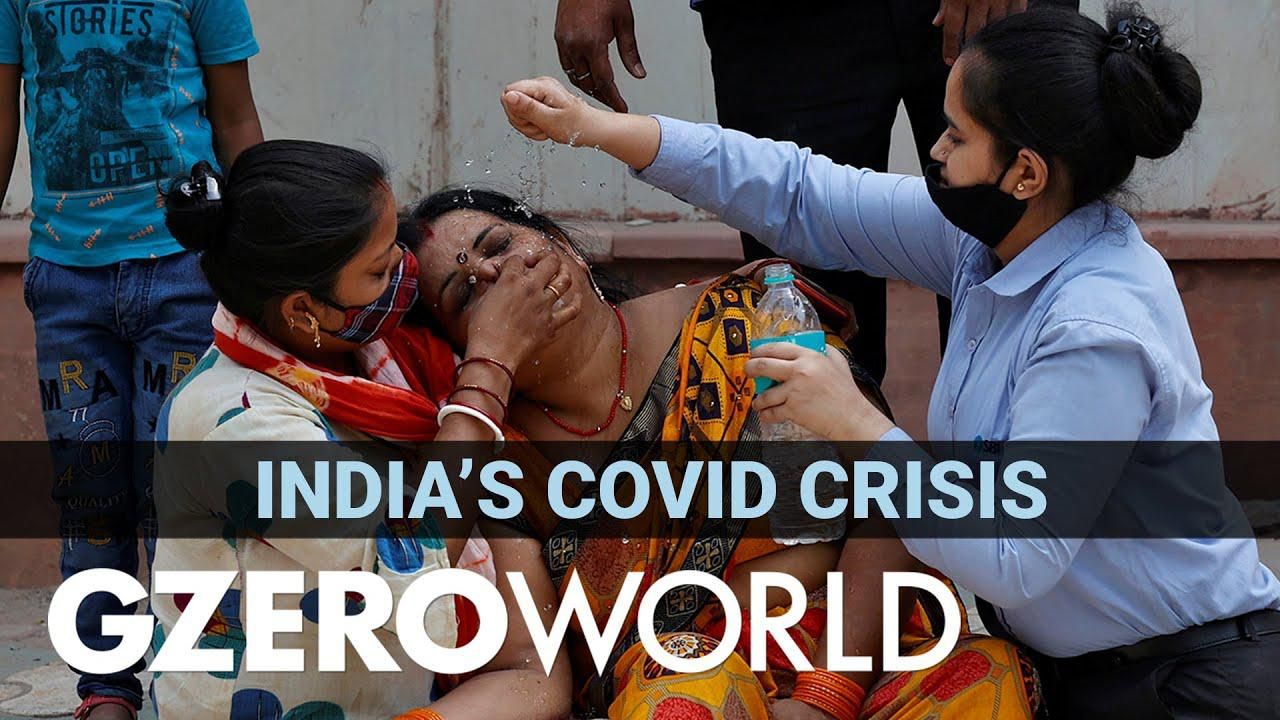May 10, 2021
India's latest COVID explosion hits home as one Delhi-based journalist speaks with Ian Bremmer on GZERO World about her own father's death from the virus. Barkha Dutt has been reporting on the pandemic in India since it began, but nothing could prepare her for the catastrophic second wave that has hit her country in the last few weeks—and that has now shattered her own family. Would her father have survived if the oxygen tank in his ambulance had been working, or if the ambulance hadn't gotten stuck in Delhi traffic? She asks similar questions of her national government. Why was it caught so unprepared by this second wave, well over a year into the pandemic? Why has India, the largest vaccine manufacturer in the world, been so slow to vaccinate its own citizens? And how much of the blame falls at the feet of Prime Minister Narendra Modi?
From Your Site Articles
- The politics of COVID aid and compassion: India vs Brazil - GZERO ... ›
- India's COVID crisis hits home: journalist Barkha Dutt: - GZERO Media ›
- The Graphic Truth: Is Modi immune to the COVID crisis? - GZERO ... ›
- COVID explodes in India - GZERO Media ›
- Scientist Jennifer Doudna on making CRISPR technology viable — and affordable — for everyone - GZERO Media ›
More For You
2026 is a tipping point year. The biggest source of global instability won’t be China, Russia, Iran, or the ~60 conflicts burning across the planet – the most since World War II. It will be the United States.
Most Popular
Sponsored posts
Surgery’s robotic shift
What's Good Wednesdays
What’s Good Wednesdays™, January 7, 2026
Supporters of the UAE-backed separatist Southern Transitional Council (STC) wave flags of the United Arab Emirates and of the STC, during a rally in Aden, Yemen, on December 30, 2025.
REUTERS/Fawaz Salman
The UAE and Saudi Arabia were once on the same side in Yemen, but no longer. The split has exposed a larger regional rift between the two oil-rich, Gulf powers.
Walmart’s $350 billion commitment to American manufacturing means two-thirds of the products we buy come straight from our backyard to yours. From New Jersey hot sauce to grills made in Tennessee, Walmart is stocking the shelves with products rooted in local communities. The impact? Over 750,000 American jobs - putting more people to work and keeping communities strong. Learn more here.
- YouTube
Is Venezuela entering a real transition or just a more volatile phase of strongman politics? In GZERO’s 2026 Top Risks livestream, Risa Grais-Targow, Director for Latin America at Eurasia Group, examines Delcy Rodríguez’s role as Venezuela's interim president after Nicolás Maduro.
© 2025 GZERO Media. All Rights Reserved | A Eurasia Group media company.
